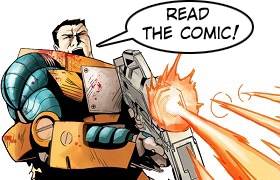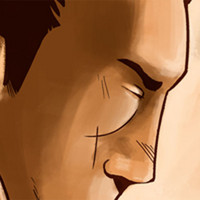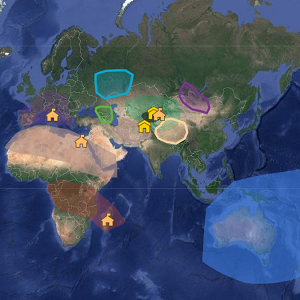I will delve in more detail into each of the major world powers at a later date. At this time I merely wish to introduce each nation and offer a brief overview of their place in the world.
Three of the great powers of the world today formed around common religious beliefs: the Nation of Deseret, the Papal Empire, and the Great Caliphate.
The Nation of Deseret:
Deseret, located in the western half of North America, was one of the very first of the new nations to form, because of the already present and highly organized Mormon Church. The strength of their community and the extent of their preparations allowed them to not only feed and provide for their church members but for everyone willing to contribute to the “United Order.” They survived the Collapse and the Winter with relatively few casualties to hunger and conflict, giving them the population and manpower to expand their area of influence.
Deseret is primarily an agrarian society, with the majority of its citizens involved in food production. Their industrial and military capabilities are sufficiently strong, however, to protect their territory from raiders. They have a fairly liberal trading policy, and are quite willing to cooperate with and support other groups and organizations, as long as their intentions are peaceful. We currently have a quite profitable arrangement with them, trading equipment and ideas for grain, food stores and good will.
The Papal Empire:
Similar to Deseret, the Papal Empire rise to power was predicated on the strength and numbers of Catholics in Europe. The unification and communal attitude was slower to form, however, meaning that many people died of hunger and conflict before order was obtained.
The high pre-Collapse population concentration largely undone, about half of the Papal Empire’s citizens live an agrarian lifestyle, while others live in the cities, rebuilding an industrial base. Much of our raw material and minerals come from trade with the Papal Empire.
The Papal Empire’s politics are largely shaped by their memory of better days when Europe was a major world power. As such, they are quite expansionistic and often clash with their neighbors to the south, the Great Caliphate.
The Great Caliphate:
With the near utter destruction of the Islamic countries of Arabia and Asia during the War, it was a great surprise to Minerva to discover an Islamic Caliphate forming in the northern parts of Africa. Our communications with the Caliphate have been limited due to the treacherously radioactive countryside separating us. Most of our information on them has come from the Papal Empire, and is thus highly suspect.
What little we do know however, leads us to believe that the Caliphate follows a much less radical version of Islam than the type that was preached leading up to and during the War. With an emphasis on establishing peace, it is likely that any relationship with the Caliphate would be a beneficial one.
The next three great nations that I wish to cover today formed not around a common religious concept, but rather around a relative independence and isolation from world affairs that sheltered them from the devastation of the War and the Collapse.
The Oceanic Commonwealth:
The pre-War nations of Oceania, while devastated economically from the global disruption of trade, were not as directly impacted by the War. Even the recently discovered oil reserves in the Australian Outback had not yet been sufficiently developed to attract the attention of warring, energy destitute countries like Russia and China.
After the Collapse and the Winter, the people of Australia and New Zealand quickly bounced back, rebuilding damaged infrastructure and establishing trade between cities. A thriving boat culture developed, allowing trade with many of the islands in the area. It wasn’t long before a new government formed, loosely uniting the various island nations that had survived, repopulating those that hadn’t.
Today, the Commonwealth is relatively stable, if uninterested in the rest of the world. They are willing trade partners, especially for technology to improve their boats. In exchange, we import a large quantity of fish. While there was some worry that they might seek to develop their oil resources, to date they are happy to use the bio-solar technology developed by Glaucus.
The Kingdom of Madagascar:
As soon the plagues and pandemics of the early 21st century began to appear around the world, the Republic of Madagascar closed its borders completely. At first, the other nations laughed in bewilderment at such extreme isolationist policies, but they would ultimately prove effective. The mutated Ebola virus decimated southern Africa, sparing Madagascar completely.
After the Long Winter ended, the island republic launched a swift invasion of the mainland, ruthlessly slaughtering thousands of plague carriers as they cut a swath across the continent. They soon established a feudal system over the land, conscripting the non-Malagasy survivors to work the farms, with the Malagasy as the ruling class.
The King of Madagascar may rule his territory with a proverbial iron fist, but his policies have proven very effective, as Africa is flourishing. Our contact with the Kingdom is limited, but initial reports from Oculus diplomats are encouraging.
The United Tribes of Amazonia:
Our information on the UTA is very limited, having been collected mainly from tales of travelers and traders by Oculus agents. What we do know is that the governments of South America were some of the first to fall during the War. The populous coastal cities were destroyed by the rioting, leading to a mass exodus into the jungles. The native tribal peoples of the Amazon Basin welcomed as many of the refugees as they could, but required that they adopt their customs. For a time, it appeared that war among the various tribes was inevitable, but according to reports a peace was somehow achieved, unifying the tribes. They have little tolerance for outsiders, and continue to live according to the traditions of their ancestors.
While they reportedly shun outsiders and advanced technology, the UTA has control of a huge portion of the South American continent. There are reported cases of immigrant settlements vanishing overnight, leading Aegis to label the area a Class 3 Zone.
– A simplistic description of the current affairs of the various world powers, transcribed from a lesson on global affairs for Minervan children. It suits my purpose, since it is all most of the adults seem to know as well.












Comments (0)
See all